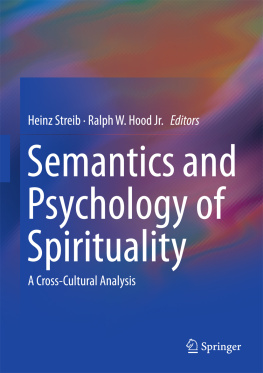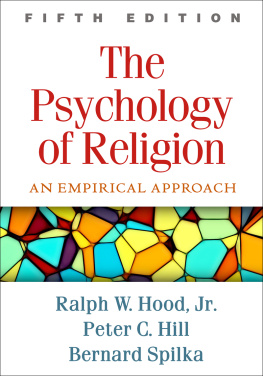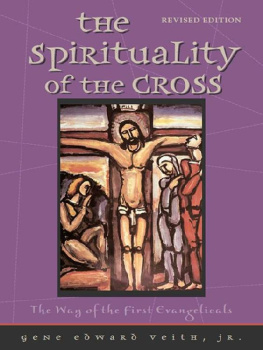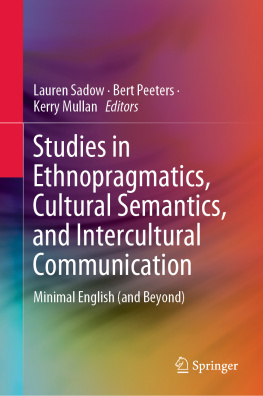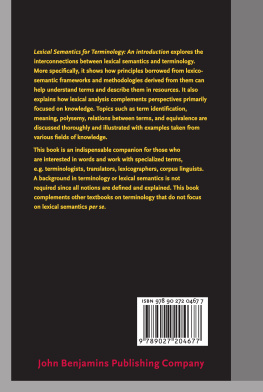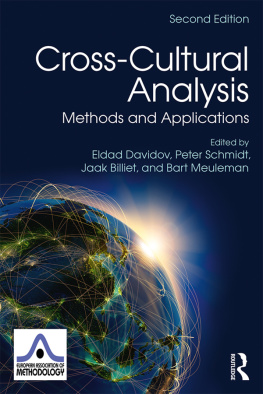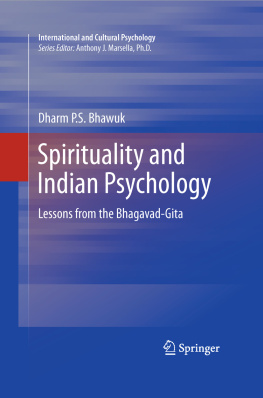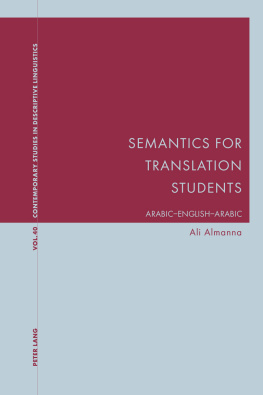No one in the scientific study of religion can ignore the spectacular increase in popularity which the self-identification of being spiritual enjoys these days. Of course, a majority of people in the United States and a considerable number in Europe use spirituality in association with religion. But an apparently growing number of people contrast spirituality and religion, self-identifying as spiritual, but not religious or as more spiritual than religious (Hood, Hill, & Spilka, , this volume).
This relatively new shift in the religio-semantic field from religion to spirituality has also affected the terminology in publicationsand lead to considerable uncertainty. A growing number of authors use religion and spirituality side by side or use a slash between these words. Many simply omit religion and use spirituality instead. Especially in areas such as health, articles are now more likely to refer to spirituality rather than religion (Miller & Thoresen, ).
There is, however, a qualitative difference between the semantic preference for spirituality by the people on the street who are or may become our research participants, on the one hand, and scientists/researchers exchange of religion for spirituality, on the other hand: While the former do notand need notnecessarily engage in reflection and justification of their terminology, the latter are required to reflectively care for their (system of) concepts and define them in respect to the best expertise possible. Viewed from this perspective, one may be surprised about the easiness of filing away the concept of religionand ignore a centuries-long controversial debate. Thus, we suggest engaging instead in serious reflection about concepts, and here we add our own contribution to the debate.
Spirituality as Scientific Concept?
The inclusion of spirituality as concept in the scientific study of religion appears to be out of balance across scientific disciplines and countries: While, for example, European-based scholars in Religionswissenschaft are reluctant to welcome such inclusion, spirituality is especially popular in the discourse in the USA, and there particularly strong in the psychology of religion. Examples are abundant: The number of publications in the psychology of religion with spirituality in the title has increased 39-fold between 1970 and 2005 (Oman, ) announce in their titles that they are about both religion and spirituality. These are only a few examples.
A rather pragmatic-open approach can be observed in the context of health care, where spirituality has become something like an umbrella term intended to be most inclusivewhich in this context appears a plausible step forward. The World Health Organization ().
In contrast to the overwhelming attraction for the new semantic in academic discourse in the USA, the thoughtful conceptualization of spirituality appears to be an unfinished project. This can be seen, for example, in the Handbook of the Psychology of Religion and Spirituality , edited by Paloutzian and Park () explain in their response to the critiques that the inclusion of spirituality in the title and the thematic of many chapters may be necessary for a handbook that should as much inclusive as possible for all colleagues in the field, they are not contributing to clarify the question about the conceptual relation between religion and spirituality.
In the early times of discourse about spirituality, there was concern about the fuzziness of the term (Spilka , ) likewise tend toward associating spirituality with New Age . This appears as an approach guided by pre-judgment, rather than by conceptual rigor.
A frequently quotedmore sophisticatedapproach to conceptualizing spirituality is Pargaments () state, is the substantive core of both religiousness and spirituality and the specific difference that distinguishes these phenomena from all others (p. 34).
The sacred thereby refers not only to God, higher powers and transcendent beings, but to a broad variety of aspects of life: Virtually any dimension can be perceived as holy, worthy of veneration or reverence (Zinnbauer & Pargament , ) to be more explicit. While the sacred, he explains in his reply, is in certain cases clearly derived from the divine, there are however other processes in which perception of divine-like qualities in objects are not necessarily rooted in beliefs in God (p. 38). And he goes on to explain that for atheist s and others as well, it might be useful to think of sacred objects as functionally autonomous from God. The sacred object is no longer directly associated with the divine, however it continues to be imbued with divine-like qualities (p. 39).
We agree with such broad conceptualization, but prefer to identify a vertical and a horizontal dimension of transcendence. The vertical dimension may reference God, but the horizontal need not (Hood et al., ).
When it comes to clarifying the difference between religion and spirituality, Pargament argues that religion is the broader construct, a broadband construct which encompasses the search for many objects of significance, while spirituality focuses on the search for one particular object of significancethe sacred (, p. 14). In our reading, Pargament has in mind a model which, for religion, regards the definitional characteristic of relation to the sacred as less important, while the search for significance serves as its key characteristic. Here we must point to a conceptual problem: On the one hand, the sacred is assumed to be the substantive core of both religiousness and spirituality; on the other hand, this characteristic that the sacred is the core appears to apply only for spirituality in the full sense, while religion also includes a wide variety of non-sacred, i.e. secular goals.

